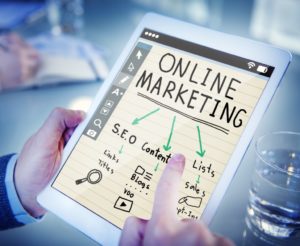Understanding the Importance of Big Data
A large area of work relies on using analytics and other consumer data to best determine how to implement marketing and advertising techniques that will best serve a client’s needs. All of this information is invaluable in the eyes of a digital marketer. It is used to create better content and ads that will be less intrusive and serve consumers’ needs better.
This is where the term Big Data comes into the marketing equation. This enormous amount of information can be equal parts hard to deal with as well as valuable. Technology has come a long way, and now all sorts of industries need to be able to comprehend and work with massive amounts of data. This wealth of digital data is commonly referred to as Big Data. Artificial Intelligence and Machine Learning have come into the picture to work with Big Data in ways that will benefit many industries including marketing.
What is Artificial Intelligence?
Artificial Intelligence is a term that has been thrown around for a long time in both movies and TV shows, seeing a robot or supercomputer has been synonymous with the term AI. Which in its stripped-down sense isn’t a very inaccurate definition. In a basic sense, AI is when a machine is capable of completing some sort of action that resembles human intelligence. In today’s world, this has come to manifest itself in everything from flying drones, Augmented Reality, and smart replies.
How Does AI Work With Digital Marketing in 2018

Digital Marketing has quickly adopted Smart Replies in the means of Chatbots. The technology behind smart replies can be used to create whole conversations between a brand and a consumer. The chatbot is a complete virtual assistant that can carry out a brands voice with a consumer while adapting to their specific product preferences and information, giving an elevated level of help to the brand’s marketers.
What is Machine Learning?
While a bit of a complex topic, an understanding of Machine Learning can be achieved without the hassle of learning the algorithms that control it. ML is the process by which computers learn to support AI functions with a greater deal of accuracy than having to be programmed by a human. An algorithm is created to teach a computer what something is, such as a car in a photograph. A team of humans will present thousands of photos to a computers algorithm, some with cars tagged and some with no cars at all. Once the computer reads through all the photos it can begin to recognize what a car looks like in a photo and will identify photos as having a car or not. After combing through enough photos the computer’s algorithm will increase its accuracy, which will only get better over time due to its ability to “learn” from new photos.
How Does ML Work With Digital Marketing in 2018
The use of Machine Learning for marketers is quite advantageous. ML is very helpful when working to optimize interactions with consumers in a specific target market. Its use can be used to track consumer trends to better learn what content is relevant and engaging to an audience, which lets digital marketers cater their efforts in the right direction. It can scour through keyword clicks and other actionable results to boost SEO and PPC efforts online. The advantages of Machine Learning is numerably endless in taking the load off of marketers research and switching focus to providing more engaging results.
Impact on UX & Industry

The integration of these technological techniques helps make a more efficient industry to drive results. Here at DVS, we are passionate about innovation and how we can use intuitive communication for our clients. Get in touch with us to learn more about how we can help you with your digital marketing needs.
